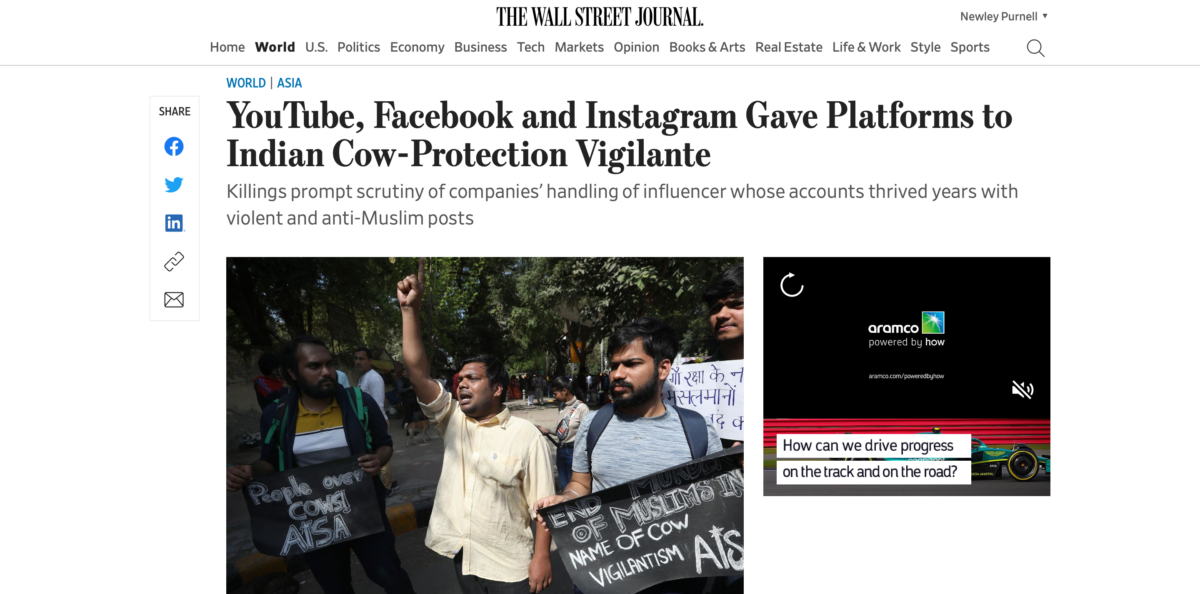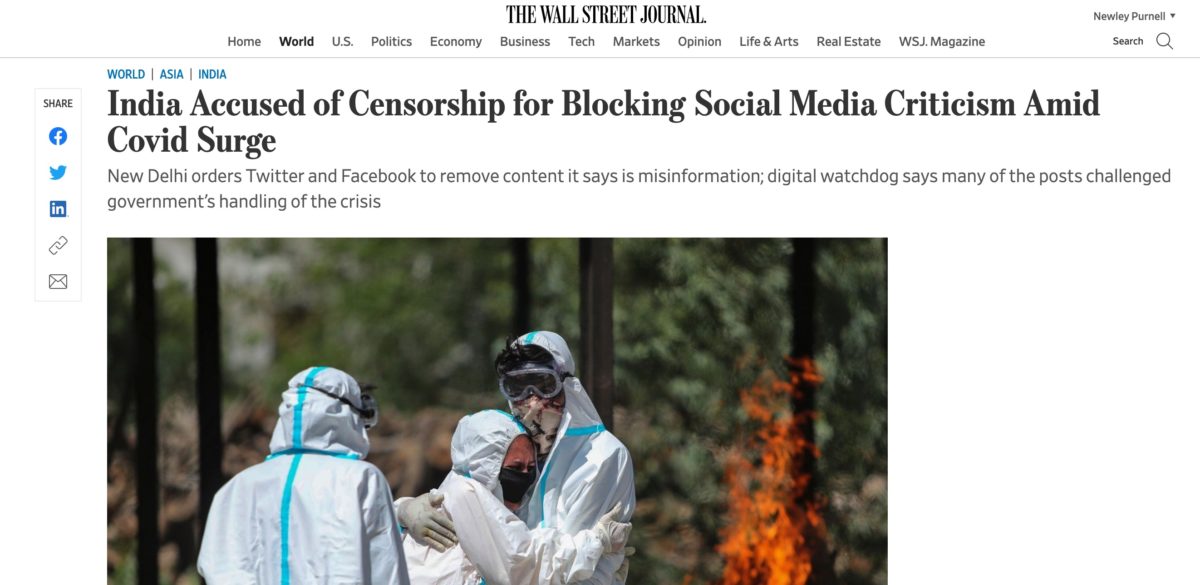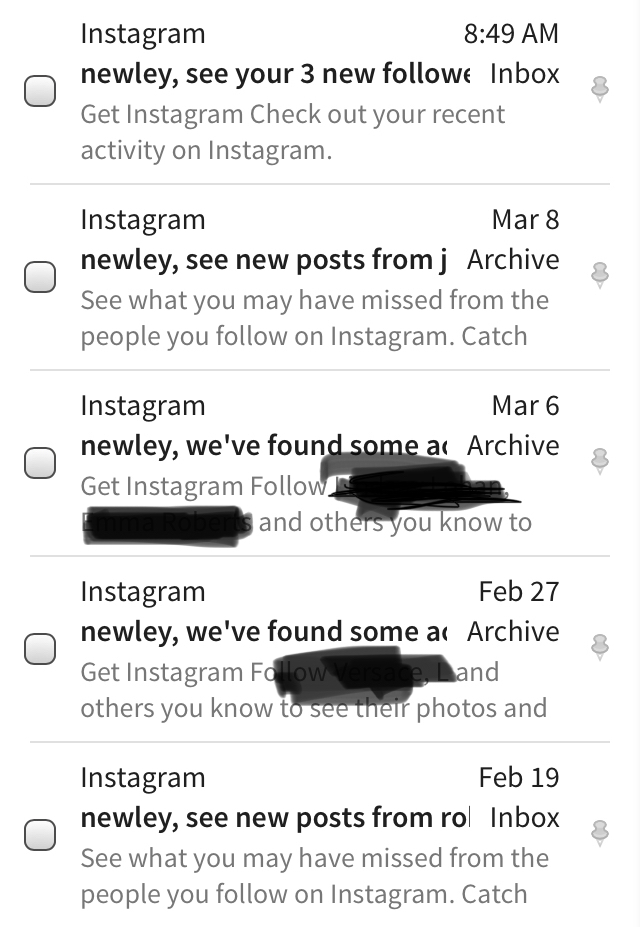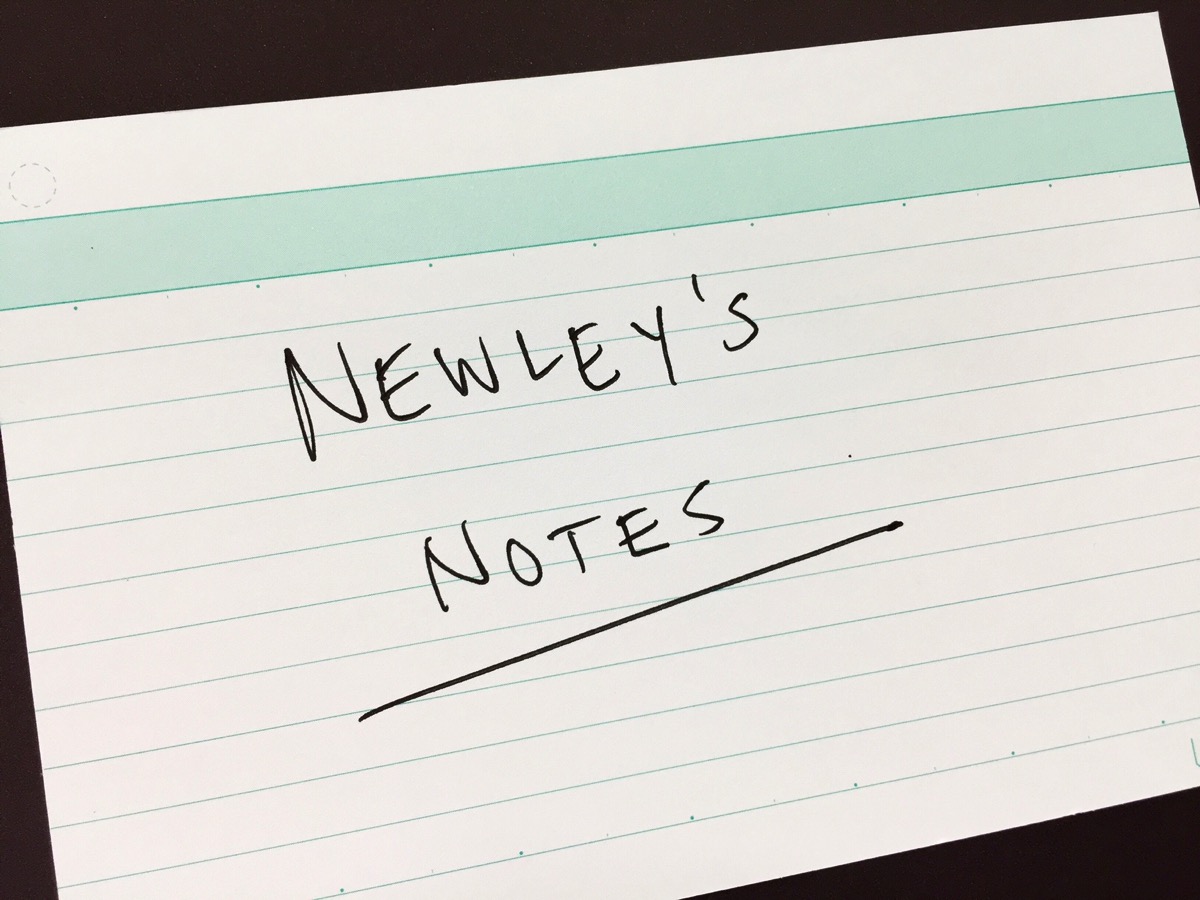That was the headline on March 6 story I wrote with my colleague Jeff Horwitz. It began:
Monu Manesar, the alias of an Indian cow-protection influencer, has spent the past six years documenting his personal war against cattle smugglers on YouTube, Facebook and Instagram.
In openly violent posts that often clashed with the platforms’ stated content policies, his accounts livestreamed car chases of men suspected to be transporting beef or cows—an animal deeply revered in Hinduism. He and fellow vigilantes filmed themselves ramming vehicles, shooting out truck tires and trading gunfire with alleged smugglers. The posts included anti-Muslim slurs and trophy photos of captives bleeding from the head.
Human-rights organizations warned YouTube, a unit of Alphabet Inc.’s Google, and Meta Platforms Inc., parent of Facebook and Instagram, that the exploits posed a threat to human life and encouraged violence against Muslims. The Monu Manesar accounts stayed online and continued to rack up followers, however: 210,000 subscribers on YouTube and nearly 150,000 across Meta’s Facebook and Instagram.
Now police in India are investigating Monu Manesar—whose real name is Mohit Yadav, according to police—and his associates in the deaths of two alleged cow smugglers whose charred bodies were found on Feb. 16 in their burned-out vehicle. The episode has sparked new debate over such vigilantism in India and what role social-media platforms play in fomenting religious violence.
Click through to read the rest.





